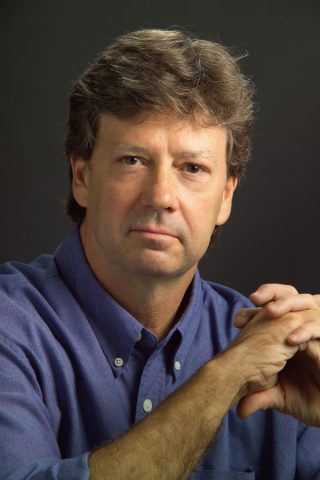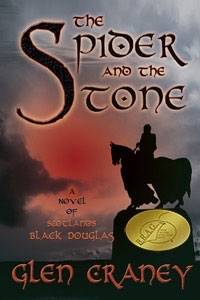I’d like to welcome back award winning author Glen Craney today. He is here to talk with us about a big part of his writing. I first started this series-A Writer’s Life- over at Layered Pages and decided to bring it to indieBRAG for our authors.
 Glen Craney is a novelist, screenwriter, journalist, and lawyer. The Academy of Motion Pictures, Arts and Sciences awarded him the Nicholl Fellowship prize for best new screenwriting. He is also a two-time indieBRAG Medallion Honoree, a Chaucer Award First-Place Winner for Historical Fiction set during the Middle Ages, and has three times been named a Foreword Reviews Book-of-the-Year Award Finalist. His debut novel, The Fire and the Light, was recognized as Best New Fiction by the National Indie Excellence Awards and as an Honorable Mention winner for Foreword’s BOTYA in historical fiction. His novels have taken readers to Occitania during the Albigensian Crusade, to the Scotland of Robert Bruce, to Portugal during the Age of Discovery, to the trenches of France during World War I, and to the American Hoovervilles of the Great Depression. He lives in southern California.
Glen Craney is a novelist, screenwriter, journalist, and lawyer. The Academy of Motion Pictures, Arts and Sciences awarded him the Nicholl Fellowship prize for best new screenwriting. He is also a two-time indieBRAG Medallion Honoree, a Chaucer Award First-Place Winner for Historical Fiction set during the Middle Ages, and has three times been named a Foreword Reviews Book-of-the-Year Award Finalist. His debut novel, The Fire and the Light, was recognized as Best New Fiction by the National Indie Excellence Awards and as an Honorable Mention winner for Foreword’s BOTYA in historical fiction. His novels have taken readers to Occitania during the Albigensian Crusade, to the Scotland of Robert Bruce, to Portugal during the Age of Discovery, to the trenches of France during World War I, and to the American Hoovervilles of the Great Depression. He lives in southern California.
Glen, what makes you feel happiest when writing?
I agree with the satirist Dorothy Parker, who reportedly answered with the quip: “I don’t like to write, but love having written.” Writing is a grind. When I hear other authors boast that they could write for hours in bliss, I wonder if psychotherapy might be in order. There are those moments when the pages’ flow and you strike a vein of gold, but I’m not sure I’d call the feeling happiness. Was Sisyphus happy when he rolled the stone to the top of the mountain only to repeat the effort?
What makes you feel the most frustrated?
It’s the slog of getting noticed above the avalanche of books now being published. I cringe when I hear the old bromide that a writer should be satisfied with the journey, not the destination. Writing without readers is like kissing your own image in the mirror. The rise of indies has created more opportunity, but it has also sparked a backlash from the rush of books into print without professional editing and vetting. That’s why indieBRAG provides such a valuable service.
What are the challenges you face when sitting down to write?
Most authors are pantsers or plotters. I’m the latter, so I usually know what needs to happen in each chapter. Are there surprises and deviations? Sure. Some say they need to write to find out what they think, but by the time I’m ready for the first draft, I’ve done so much research and thinking about the story that I know it inside and out. So, the challenge for me is finding a motivation in the writing other than discovery.
What traits and values do your characters have that you have most in common with?
A dry wit, even in serious stories. And there’s usually at least one character in my novels who serves the purpose of a Greek chorus—challenging traditions and beliefs, poking at those in power and championing the downtrodden.
How would your characters describe you?
They’d probably say I’m skeptical of official history written by the winners; intolerant of hypocrisy; restless to find the next mystery to solve; a lover of walking historical sites; and one who subscribes to the philosopher Averroës’s warning that “there is no tyranny on earth like the tyranny of priests.”
If you were to write your memoir, what title would you give it?
An Indiana Hoosier in King Arthur’s Court
What are your themes in storytelling?
I try to find the mythic thread of the hero’s journey in the maze of historical “facts.” In my opinion, there’s no higher calling for the historical novelist than to rattle the cages of the powerful. I’m a sucker for a great story regardless of era, and I blame my stint as a journalist for never being satisfied with staying in one-time period or genre. We authors’ tend to be either nesters or butterflies. I like to flit across the past drawing the nectar from one flower and moving on, rather than settling into a series. As for a philosophy, I didn’t consciously start out with one, but I tend to admire the dark sheep of history and of Christianity in particular. To that end, I keep a favorite Shakespeare quote on my desk: “It is a heretic that makes the fire, not she which burns in’t.”
What is the emotion/feelings you have after writing for hours?
I’m usually drained. I try to get away from the computer to exercise—take a walk, play golf, or catch a yoga class.
 Do you have a habit in your writing that you wish you could get rid of? Explain.
Do you have a habit in your writing that you wish you could get rid of? Explain.
I can’t write more than a few pages without circling back to edit them. I could finish a book faster if I would just fly through the first draft, but I’m so revolted by the mess that goes onto the blank page that I have to clean it up as soon as possible.
What is the best compliment someone gave you about your book(s)?
A military veteran left an Amazon review for The Spider and the Stone, which tells the story of Scotland’s Black Douglas during the 14th century wars of independence against England. The reviewer, a Scottish-American, wrote that he led a battalion in Vietnam and never became emotional during that difficult experience. Yet he shed tears as he read my story of the friendship between James Douglas and Robert the Bruce. I treasure that review. And so, apparently, did many other readers, because the review is marked as the most helpful of all posted on Amazon for the book.
I agree with so much of what you said here, Glen, especially the circling back to edit. I’m yelling at myself to keep going at the same time I’m circling back. Now I must read The Spider and the Stone for my review blog. I need more men and Scottish history there. I enjoyed this interview.
Thanks for the interview, Stephanie!
You’re welcome, Glen! It is always great to chat with you and about your writing.